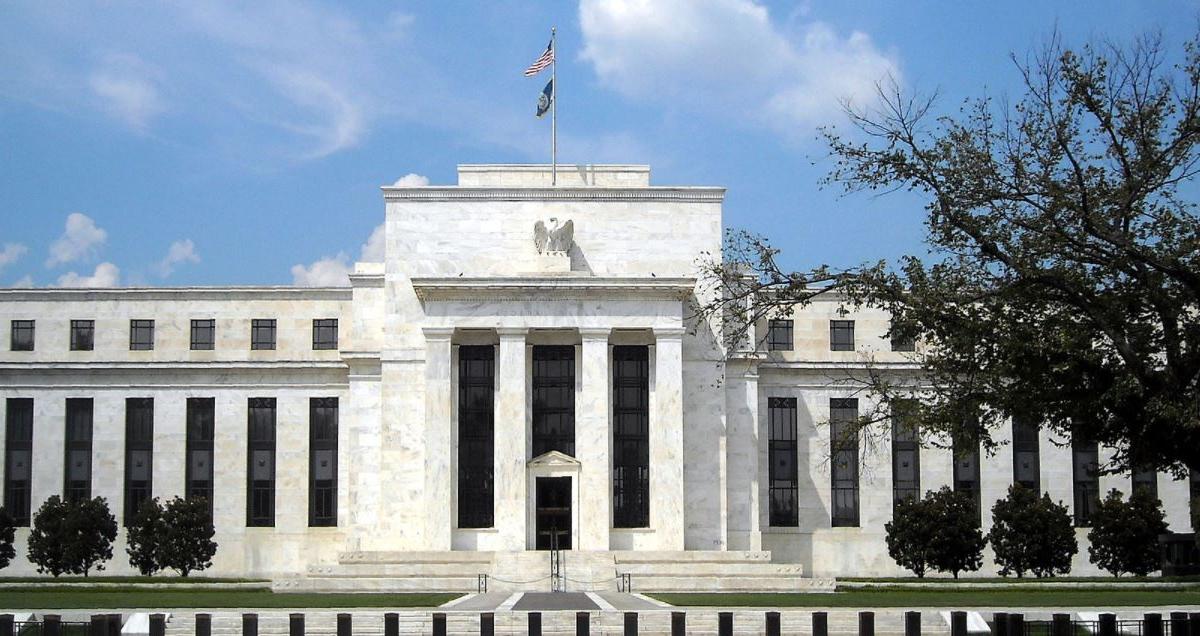
You’ll Be Shocked the Learn There’s Corruption at the Fed
Fed Chaiman Jerome Powell has decided the Fed ought to “review” its ethics policies after it was revealed that high-ranking personnel at the Fed were actively trading stocks even as the Fed was busy pulling the levers on monetary policy.
CNBC reported today:
Federal Reserve Chairman Jerome Powell directed staff to review the central bank’s ethics rules for appropriate financial activities after disclosures that several senior central bank officials made multiple multimillion-dollar stock trades in 2020, while others held significant investments. …
Last week, financial disclosures filed by the Fed’s 12 regional presidents revealed some had actively traded in 2020, while others held million-dollar financial positions without making changes to their portfolios.
Specifically, Dallas Fed President Robert Kaplan made numerous trades worth $1 million or more last year. Meanwhile, Boston Fed President Eric Rosengren last year was making large trades in real estate investment trusts, possibly in the six-figures range.
The problem here is obvious to any normal person who watches the Fed.
The Fed is not just an instrument of monetary policy, but a regulator of financial institutions. The Fed regulates bank holding companies, foreign banks working in the US, hundreds of state members banks, and other institutions as well. This gives Fed policymakers an enormous amount of control over the fortunes of many financial institutions.
Moreover, Fed policy can be—and these days, usually is—instrumental in pushing up stock prices and real estate prices through monetary inflation. Since the Great Recession—and arguably since the late 1980s with the “Greenspan put”—the Fed has been instrumental in subsidizing stock prices through an implied promise that the fed will rush to the rescue if financial markets face and real risk of a falling prices. Since the Great Recession especially, the Fed’s unconventional monetary policy has means the Fed has sucked up trillions of dollars in bonds and mortgage debt. This means both a direct subsidy of real estate investments and also—as Fed asset purchases push down interest rates—a flight to yield in the stock market.
Not surprisingly, we can see a clear correlation between the Fed’s easy money policy and a supercharged stock market.
The information available to these regulators and policymakers also provides an enormous amount of insider information not available to outsiders. So, perhaps, Fed officials should divest themselves of their stock and real estate portfolios, at the very least?
For Rosengren and Kaplan, however, this is crazy talk since both men insisted their actions were “consistent with their respective bank’s code of conduct policies.” This may very well be true, although this only illustrates how the Federal Reserve System is soft on potential corruption within the ranks of its leadership.
After all, Rosengren and Kaplan only offered to sell their holdings after a public scandal broke out.
Non-Fed personnel were less sanguine on the issue. As the Wall Street Journal reported:
Mr. Kaplan’s trading “should be a scandal,” said Professor Peter Conti-Brown of the University of Pennsylvania, an expert on the structure of the Federal Reserve. “If he’s making directional bets on interest rates, we will not be able to tell if he’s advocating for policies for the public good or talking his book. It’s a fundamental conflict of interest.” Mr. Conti-Brown also said that the perception that Mr. Kaplan could personally profit from his Fed role feeds into longstanding skepticism of the Fed held in some corners.
Kathryn Judge, a law professor at Columbia University, said Fed officials “are privy to all kinds of information that has the potential to move markets.” While Mr. Kaplan may have followed the letter of the code, she said it is unclear if he followed the spirit.
The position of Kaplan and Rosengren is typical for government officials—which is what Fed officials essentially are. This is also common in Congress: what matters is finding loopholes allowing the official to maximize his personal wealth, capitalizing on his ability to affect regulations and conditions that affect the prices of his investments. All that matters is that the lawyers say it’s okay.
It’s not surprising, of course, that Congress is chock full of millionaires. The Fed’s boards aren’t exactly populated by “regular folk.”
And this may be significant in helping us understand how Fed policy has been so lopsided in favoring the ultra-wealthy while imposing price inflation and a higher cost of living on people of more ordinary means. Fed policy has been extremely successful from the point of view of billionaires and hedge fund managers holding huge stock portfolios and real estate holdings. The prices just keep going up, and at rates that outpace official price inflation rates.
But for first-time home buyers, and the many millions of American workers who own few stocks? They just face higher prices for housing, education, healthcare, and now even food. Investing is out of the question because ultra-low interest rate policy makes traditional, conservative, low-risk investments (like savings accounts) basically worthless. Wholesale food prices are up 12.7 percent.
But Eric Rosengren has more than a million dollars to throw around. He’s doing fine.



